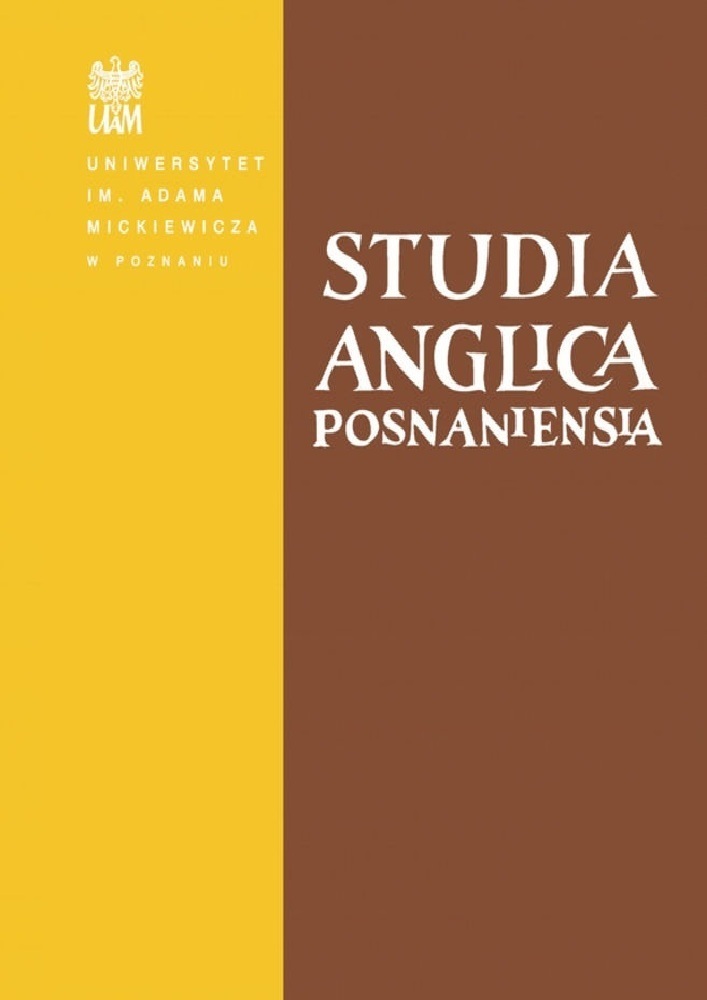Abstract
This paper uses these data, supplementing them with searches in the Dictionary of Old English Web Corpus, Brepolis Library of Latin Texts - Series A, monumenta.ch and Medieval Latin from Anglo-Saxon Sources, and analyses lexical and syntactic strategies of the Greek outgroup construction in Anglo-Saxon texts. It looks at lexemes denoting ‘Greek’ and their derivatives in Anglo-Latin and Old English, examines their collocates and gleans information on attitudes towards Greek and the Greeks, and on membership claims indexed by Latin-Greek or English-Greek code-switching, by at the same time trying to establish parallels and influences between the two high registers of the Anglo-Saxon period.
References
Adams, J. N. 2003. Bilingualism and the Latin language. Cambridge: Cambridge University Press.
Amsler, Mark. 1989. Etymology and grammatical discourse in Late Antiquity and the Early Middle Ages. Amsterdam/Philadelphia: Benjamins.
Bately, Janet. 1980. The Old English Orosius. (Early English Text Society, Supplementary series 6.) Oxford: Oxford University Press.
Bodden, Mary Catherine. 1988. Evidence for knowledge of Greek in Anglo-Saxon England. Anglo-Saxon England 17. 217-246.
Cooper-Rompato, Christine F. 2010. The gift of tongues: Women’s xenoglossia in the Later Middle Ages. University Park, PA: The Pennsylvania State University Press.
Copeland, Rita & Ineke Sluiter. 2009. Medieval grammar and rhetoric: Language arts and literary theory, AD 300-1475. Oxford: Oxford University Press.
Dictionary of Old English: A to G online, ed. Angus Cameron, Ashley Crandell Amos, Antonette diPaolo Healey et al. (Toronto: Dictionary of Old English Project 2007).
Dictionary of Old English Web Corpus, compiled by Antonette diPaolo Healey with John Price Wilkin and Xin Xiang. (Toronto: Dictionary of Old English Project 2009).
Dionisotti, A. C. 1988. Greek grammars and dictionaries in Carolingian Europe. In Michael W. Herren (ed.), in collaboration with Shirley Ann Brown, The sacred nectar of the Greeks: The study of Greek in the West in the Early Middle Ages, 1-56. (King’s College London Medieval Studies 2.) London: King’s College Centre for Late Antique and Medieval Studies.
Durkin, Philip. 2014. Borrowed words: A history of loanwords in English. Oxford: Oxford University Press.
Feulner, Anna Helene. 2000. Die griechischen Lehnwörter im Altenglischen. (Münchener Universitäts-Schriften. Texte und Untersuchungen zur Englischen Philologie 21.) Frankfurt am Main: Peter Lang Verlag.
Frantzen, Allen J. 2003-2016. Anglo-Saxon penitentials: A cultural database. http://www.anglosaxon.net/penance/.
Hall, Thomas N. 2009. Ælfric as pedagogue. In Hugh Magennis & Mary Swan (eds.), A companion to Ælfric, 193-216. (Brill’s Companions to the Christian Tradition 18.) Leiden/Boston: Brill.
Hunter Blair, Peter. 1990. The world of Bede. Reissue with corrections. Cambridge: Cambridge University Press.
Jones, Christopher A. 2009. Ælfric and the limits of ‘Benedictine Reform’. In Hugh Magennis & Mary Swan (eds.), A companion to Ælfric, 67-108. (Brill’s Companions to the Christian Tradition 18.) Leiden/Boston: Brill.
Lapidge, Michael. 1975. The hermeneutic style in tenth-century Anglo-Latin literature. Anglo- Saxon England 4. 67-111.
Lapidge, Michael. 1988. The study of Greek at the school of Canterbury in the seventh century. In Michael W. Herren (ed.), in collaboration with Shirley Ann Brown, The sacred nectar of the Greeks: The study of Greek in the West in the Early Middle Ages, 169-194. (King’s College London Medieval Studies 2.) London: King’s College Centre for Late Antique and Medieval Studies.
Lapidge, Michael. 2006. The Anglo-Saxon library. Oxford: Oxford University Press.
Lenker, Ursula. 2000. The monasteries of the Benedictine Reform and the ‘Winchester School’: Model cases of social networks in Anglo-Saxon England? European Journal of English Studies 4.3. 225-238.
Library of Latin texts, Series A. Brepolis Databases. Brepols. http://clt.brepolis.net/llta/Default.aspx.
Medieval Latin from Anglo-Saxon sources, ed. by Olga Timofeeva, Anne Gardner, Alpo Honkapohja. University of Zurich.
Miller, D. Gary. 2012. External influences on English: From its beginnings to the Renaissance. Oxford: Oxford University Press.
monumenta.ch = Monumenta Informatik, ed. by Max Bänziger in cooperation with Christoph Flüeler. http://www.monumenta.ch/latein.
Pahta, Päivi & Arja Nurmi. 2006. Code-switching in the Helsinki Corpus: A thousand years of multilingual practices. In Nikolaus Ritt, Herbert Schendl, Christiane Dalton-Puffer & Dieter Kastovsky (eds.), Medieval English and its heritage: Structure, meaning and mechanisms of change, 203-220. (Studies in English Medieval Language and Literature 16.) Frankfurt am Main: Peter Lang Verlag.
Sawyer, John F. A. 1999. Sacred languages and sacred texts. London/New York: Routledge.
Simon, Diana-Lee. 2001. Towards a new understanding of codeswitching in the foreign language classroom. In Rodolfo Jacobson (ed.), Codeswitching worldwide II, 311-342. (Trends in Linguistics. Studies and Monographs 126.) Berlin/New York: Mouton de Gruyter.
Stephenson, Rebecca. 2009. Scapegoating the secular clergy: The hermeneutic style as a form of monastic self-definition. Anglo-Saxon England 38. 101-135.
Swanton, Michael (ed.). 1996. The Anglo-Saxon Chronicle. London: Dent.
Timofeeva, Olga. 2013. Of ledenum bocum to engliscum gereorde: Bilingual communities of practice in Anglo-Saxon England. In Joanna Kopaczyk & Andreas H. Jucker (eds.), Communities of practice in the history of English, 201-224. (Pragmatics and Beyond New Series 235.) Amsterdam: Benjamins.
Timofeeva, Olga. 2016. Alfredian press on the Vikings: Critical discourse approach to outgroup construction. Journal of English Linguistics 44.3. 230-253.
Thorpe, Benjamin (ed.) 1844. The homilies of the Anglo-Saxon Church. The first part, containing the Sermones Catholici or Homilies of Ælfric in the original Anglo-Saxon, with an English version, vol. 1. London: Ælfric Society.
